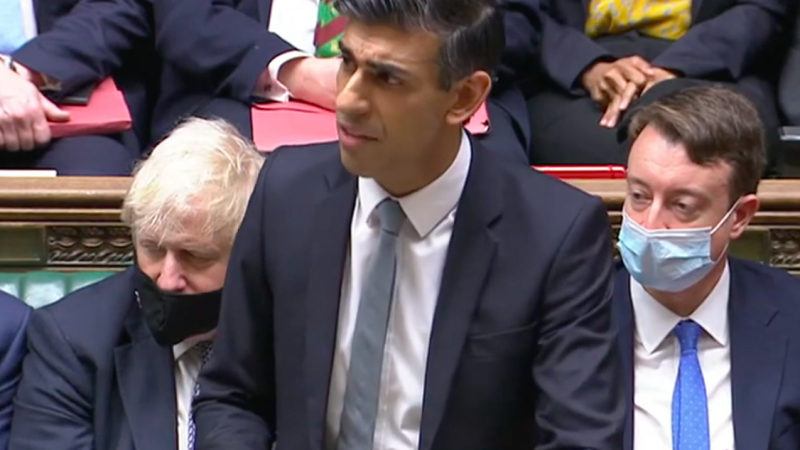Faced with a choice of setting out an ambitiously green budget, on the eve of a global climate summit that the government will be hosting, Rishi Sunak opted for business as usual.

Just days before the COP26 climate summit kicks off, described as ‘our last chance to get runaway climate change under control’, chancellor Rishi Sunak delivered a budget that many had hoped would set out how the government would tackle the climate emergency. Yet Sunak barely mentioned the climate at all. If anything, it turned out to be an anti-environment budget.
Faced with a choice of setting out an ambitiously green budget, on the eve of a global climate summit that the government will be hosting, Rishi Sunak opted for business as usual, despite the scale of the challenge facing the planet, not to mention the radical action that will be needed to meet the government’s own target of reaching net zero by 2050.
Here are some of the reasons why Sunak’s budget failed on climate change:
1.Slashing taxes on domestic flights
You would think that reducing carbon emissions from aviation would be a major priority for the government, yet just days before the COP26 summit, Sunak announced in his budget that the government would be slashing taxes on domestic flights. It was a move slammed by Friends of the Earth’s head of policy, Mike Childs, who said that the chancellor’s plans were “shockingly bad” and will “simply prolong the UK’s dependency on fossil fuels”.
SNP Westminster leader, Ian Blackford, called the decision a disgrace and said: “This is not a government that understands the climate challenge that we all face” because “the fact is that C02 emissions per mile are much higher on domestic flights than they are on long-haul flights.”
2. Freezing fuel duty
Sunak also said that the UK would freeze fuel duty for a 12th consecutive year, saving drivers £1,900 over 10 years. Environmental groups say that rather than combatting climate change, the move will further encourage driving.
At the March budget, the Treasury’s “red book” had said: “Future fuel duty rates will be considered in the context of the UK’s commitment to reach net-zero emissions by 2050.”
3. No recognition of the role local authorities can play in the transition to net zero
There was barely any mention in the budget of the role local councils can play in tackling climate change nor did the chancellor set out any measures to support them to do so. As Wera Hobhouse MP writes in LFF this week, ‘local governments across the country have a key role to play in tackling climate change yet the budget has offered little scope to local authorities to act. It is a wasted opportunity.’
Decarbonising buildings, transport, waste, industry, cutting emissions from agriculture and increasing carbon sinks through land use and forestry are dependent on delivery at a local level, yet we heard very little about what tools the government will give to local authorities to help them fight the effects of climate change.
4. Lack of investment for public transport
While many welcomed Sunak’s spending announcements for public transport, only £1.5 billion of it turned out to be new money. The Green Alliance says that £7.6 billion is what is needed, with Sunak’s offer falling way short. The chancellor did however set out £21bn for roads. One would think that the government would include policies to curb road traffic in its net-zero plans.
5. Lack of investment for decarbonising homes
Instead of announcing new money, the chancellor only reiterated the £3.9bn to support home insulation and low-carbon heating that was announced in the heat and buildings strategy. The government has set aside £450 million of funding for the next three years for its ‘boiler upgrade scheme’, making grants available of £5,000 to households to help them replace their gas boilers with a low carbon heat pump.
Although up to 25 million UK homes have gas boilers, the grants will fund just 90,000 pumps over three years. Given that the government’s target is 600k heat pumps a year by 2028, this is way short of where they need to be.
Basit Mahmood is editor of Left Foot Forward
To reach hundreds of thousands of new readers we need to grow our donor base substantially.
That's why in 2024, we are seeking to generate 150 additional regular donors to support Left Foot Forward's work.
We still need another 117 people to donate to hit the target. You can help. Donate today.



